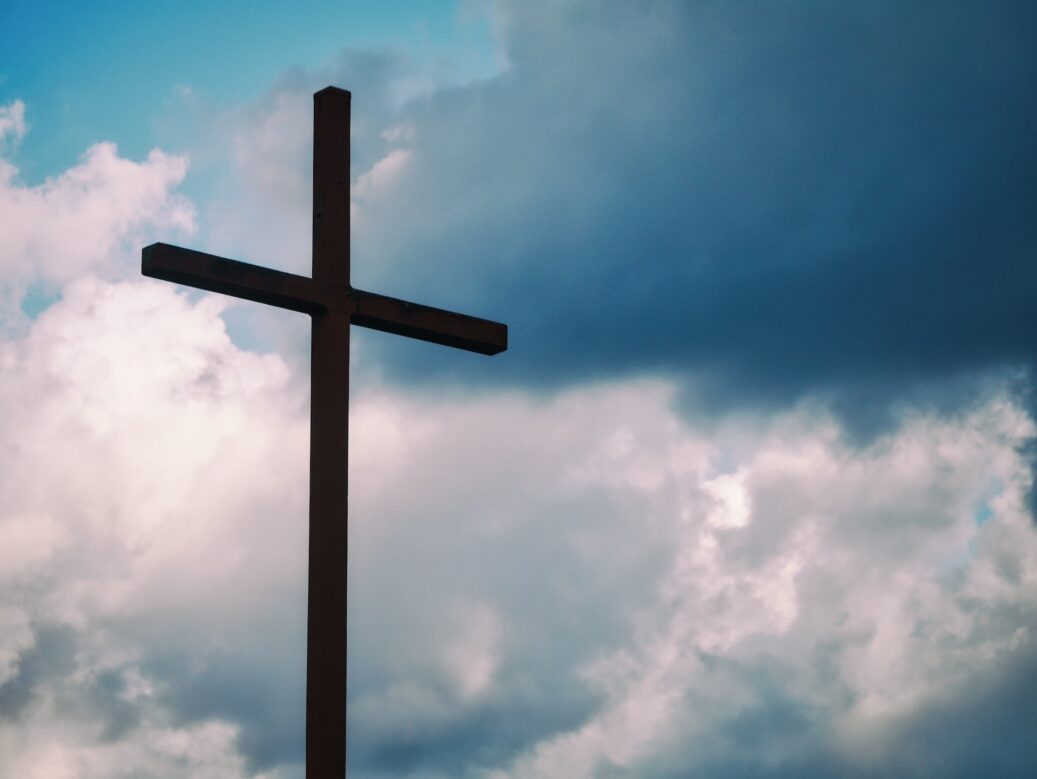Before he died, theoretical physicist Stephen Hawking gave much of his life to the pursuit of what is nicknamed “The Theory of Everything” – the search for a single, all-encompassing, unifying framework for understanding how the universe physically works.
While science-related things are generally beyond my understanding (as my 11th-grade chemistry teacher politely informed me), it points to the human desire to search, seek and comprehend the world around us. Whether it’s the universe, the human brain, medical science, cultural dynamics, or the differences between men and women—whatever the big, broad topic is, humanity seeks to understand and make sense of what we see around us.
In this, we believe the Gospel gives us answers.
We’ll let the scientists grapple with the scientific questions and let psychologists dig into mental functions, and the medical professionals can keep exploring health matters while sociologists weigh in on cultural factors.
When it comes to issues between men and women, of course, we will just listen to our wives.
But beyond these many avenues of knowledge, in seeking a framework of understanding for the big picture—what’s going on in our world—the Gospel really does explain everything.
Not every little detail or every tough question, of course. There is still a mystery to God that we grapple with in this life, and we aren’t promised answers to literally everything.
But the Good-News Gospel of Jesus Christ gives us a vehicle for understanding what is going on with humanity and what God plans to do about it, and does so in a compelling, enriching, and beautiful way.
Here’s how:
1. The Gospel explains why things are the way they are.
Why is the world a mess? Why are people so terrible to one another? Why is there pain and suffering and death? If God is real, why can’t we see Him?
Scripture boils it down to this: sin.
Once, we lived in perfection, in perfect communion with God and others in a perfect world (Genesis 1-2). But something inside us wanted to go our own way, rejecting God and ignoring His ways. Like sheep, we have wandered away from The Lord and all of His blessings (Isaiah 53:6).
In walking away from God, we walked away from the Source of love, peace, safety, unity, and life. Like unplugging a power cord from an outlet, when one disconnects from that Source, all those blessings are disconnected as well, and all that is left is discord, destruction, and ultimately, death (Romans 6:23). Sin is why things are the way they are.
2. The Gospel offers the solution to the way things are.
Although we were the ones who wandered, God loved us too much to leave us there (John 3:16). He didn’t just call us back; He actively pursued us. Seeing us lost and helpless on our own, He came down to us, walking amongst us as Jesus, living a life in the full human experience, including all of the suffering that He didn’t deserve but experienced anyway (e.g. John 1:14; Philippians 2:5-11; Hebrews 2:17-19; etc.).
In this, no one could ever say that God doesn’t understand the human condition.
Where our sins had disconnected us from God, Jesus took our sins and their consequences upon Himself and allowed Himself to be nailed to the cross, killing Himself and killing our sin at the same time (e.g. 2 Corinthians 5:21; Colossians 2:13-14; 1 Peter 2:24; etc.).
But death could not keep its hold on Him, and as He rose to life over death, He offers His eternal life to us too (Acts 2:24; Romans 6:5).
At the cross, Jesus solved the problem of our sin, and in the resurrection, Jesus solved the problem of our death. He offers these solutions to us freely as we put our trust in Him (Ephesians 2:8-9).
3. The Gospel levels the playing field of humanity.
Where we see division, contempt, and even hatred all around us between the sexes, between races, between countries, between cultures, and between classes of people, the Gospel comes to remove each and every one of these barriers.
All have sinned, and all are offered the exact same forgiveness in Christ (Romans 3:23).
In the Kingdom of God, there is no man or woman, no racial divide, no free or servant, no young or old—all are equal in the eyes of God (Acts 2:17-18; Galatians 3:28). We look forward to a day when this is fully realized (Revelation 7:9-10); until that day, the Church is the be the place that proclaims to the world that God is “no respecter of persons,” and that all are equally invited to sit at God’s table and equally called to worship and follow the One Lord together (Acts 10:34-35).
4. The Gospel offers the best of what life could be.
Even atheists can acknowledge that the teachings and lived example of Jesus are incredibly beautiful. If everyone lived the way Jesus taught us and showed us how to live, the world would indeed be a perfect place. Jesus models for us how God intended for humanity to live, and as we live that way, we show others the beauty of God’s design as well (1 John 2:6).
What is more, Jesus sends His Holy Spirit to take up residence within us (John 14:17), connecting us to the life-giving presence of God, where He refreshes us, teaches us, sustains us, transforms us, and gives a glimpse of what the fullness of Heaven is going to be like (e.g. John 16:13; Acts 3:19-20; 1 Corinthians 6:19; 2 Corinthians 1:22; etc.). We are never alone, and Heaven isn’t just a place we’ll go to one day; we get to start living in the blessings of Heaven, right now, here on earth (Matthew 3:2).
Because of this and more, the Gospel has been called “The Greatest Story Ever Told.” It reveals why things are the way they are, but more importantly, it reveals God’s great plan to make all things right. In this Gospel, we put our hope, not because of the story, but because of the God who writes it, and who is mighty to save.
About


